Last Updated on July 30, 2021
PLOT: High schooler Vada navigates the emotional fallout she experiences in the wake of a school tragedy. Relationships with her family, friends and view of the world are forever altered.
REVIEW: One of the tragedies of America is that too many school students have had to go through the kind of trauma that would normally be reserved for combat veterans. How teenagers have had to adapt to life afterward – on top of dealing with the change that comes with being a teenager anyway – can never be fully exemplified in a single story, but Megan Park’s jarring directorial debut, The Fallout, does a masterful job nonetheless.
Sixteen-year-old Vada’s (Jenna Ortega) day starts off normal enough – nodding off while getting ready for school. She’s picked up by her friend Nick (Will Ropp), and they jam out to music and hit up Starbucks. Park writes her as not unlike any normal American teenager today, one who isn’t too popular and has a style of their own, which Ortega eases into. But in a masterful, terrifying pivot, the tone switches from high-school-flick to pure horror. Vada, hiding in a bathroom stall with Mia (Maddie Ziegler), hyperventilates as gunshots echo in the hall outside. Vada tries her hardest to make sure anything of theirs that falls on the floor gets picked up, lest the shooter walks in and notices. Soon a male student, Quinton (Niles Fitch) rushes in covered in blood, saying in disbelief how they got his brother. Between the terror on the character’s faces as they fear for their lives, and the surreal sounds of gunshots that only escalate in volume, it is perhaps some of the most heart-pounding minutes you’ll see on screen this year.
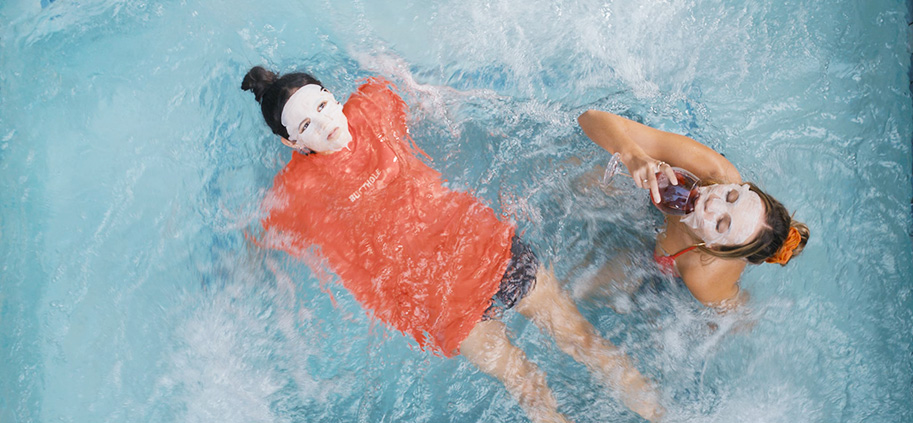
As the title suggests, this is about the aftermath of the shooting as we center on Vada as she struggles to adapt by putting on a “chill” face that suggests everything is normal and that she’s good, despite the fact that even she knows nothing will never be the same again. It’s a high-school-set, coming-of-age story where the circumstances signaling that everything is different are forced onto the character rather than being a natural passage of time; a few minutes of bullets and screams rather than an evening of beers and buds. As difficult as that kind of storytelling can be, a blend and balance of tones come to define Park’s incredible debut work, gliding between devastating heartache and moments of silence, and perhaps most unexpectedly, a disarming sense of humor.
Park’s film is defined by these little moments weaved together into a whole, as Vada spends her days avoiding her family, sitting in the dark and staring at her phone, with the only time she’s spending out of her room or the bathroom being on the couch watching TV. Her solace comes in befriending Madi, an Instagram influencer known for her dance videos (making use of Ziegler’s real-life talents). The moment in the stall the two shared together has unexpectedly bonded them for life, and while on the surface their moments together play like two teenagers letting the summer days whizz by with food and afternoons by the pool, Park, and the fantastic performances, always ensure that whatever pain they’re not discussing lingers in the background. They both know it’s something they don’t want to talk about, and even when little hints of the day are spoken about, they retreat into trying to build up a new normal.
But the emotional toll ricochets between everyone in Vada’s life. Her mother (Julie Bowen) wants her to open up, only for Vada to totally shut her out. Most heartbreaking, this extends to her younger sister, Amelia (Lumi Pollack), who wants to feel connected to her big sister again, only to be iced over and over again. Again, where Park’s brilliance as a director and cast’s equal brilliance with their characters means that each interaction hits a little differently, with so much information put on the screen to hint just enough at where everyone is in their arcs without giving away the whole show. Part of watching that balancing act between characters is what makes sticking with the story so engaging, even if the story is about living moment to moment over having a more conventional narrative arc.
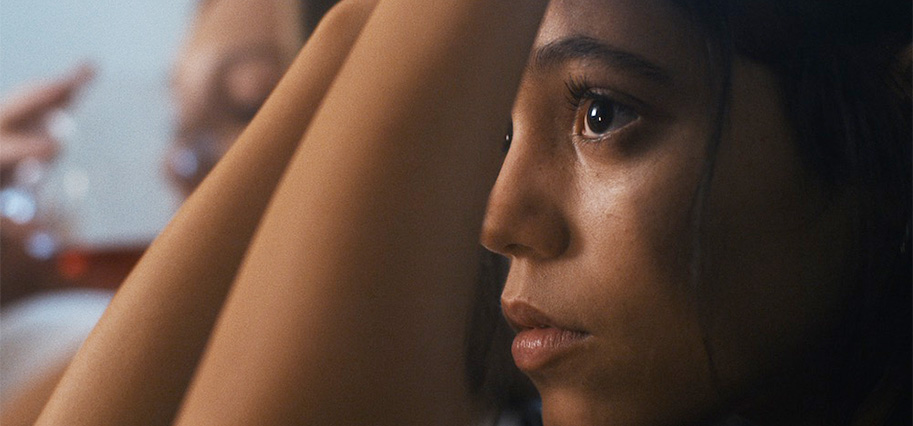
At the core of it all is Ortega as Vada, a role I hope gets her as much attention as the movie gets itself. A hugely complex performance that requires her to play both a playful, awkward high-school student who is repressing deep emotional trauma, the range Ortega puts on display is both so perfect of her age and wildly beyond it. Capable of making you tear-up/ugly cry – like how she plays a simple hug to Quinton, or when she and Amelia finally have a cathartic moment that will knock you to the ground – or laugh riotously. Park writes the characters knowing there’s light in them blending with the pain, and there’s no shortage of funny moments that make it almost as much comedy as drama – nearly all of them hinging on Ortega’s timing. Look no further than a scene when Vada takes ecstasy to get through one of her first days back at school, a whole sequence which seems inspired by Leonardo DiCaprio’s work in Wolf of Wall Street, and that Ortega absolutely nails. Everything she does comes layered with the reminder that Vada’s coping the best way she knows how no matter what the scenario, and Ortega is a knockout from start to finish and signals she’s ready for bigger things.
There’s not a weak link in the rest of the cast, either. Ziegler is great as the quieter type compared to Vada. Her dads are often away on business, leaving Madi alone in their artsy, expensive home. She gives her dialogue a hesitance to play up how her character struggles to put words to her numbness, which she will likely have to keep buried should she continue her Instagram ascension. Her connection with Vada is the only thing keeping her going, and Ziegler is excellent alongside Ortega. Pollack, Bowen, Shailene Woodley as Vada's counselor, and John Ortiz as Vada’s father are all terrific (especially young Pollack) and most get their heart-wrenching moments by the end – albeit the one flaw I can think of is the lack of screen time for Ortiz. Then there are her other friends and classmates. A signal that times are changing comes in the deteriorating bind between Vada and Nick, the latter having used the moment to become the face of the political revolution, not unlike the students in the aftermath of the Marjory Stoneman Douglas shooting in Parkland, Florida in 2018. He views Vada’s coping as repressing, and as he moves on with a new sense of passion for change, they drift apart, and their last moment together subtly puts the last nail in the coffin. As Quinton, who would normally be a love interest in a typical high school movie, acts as another way for Vada to work through her feelings. Another great performance in the movie, Fitch blends charm with heartache, dealing with the pain of losing his brother while also being at peace believing he will never really leave him.
The Fallout’s story begins after a tragedy occurs that should only exist in nightmares, and the final scene acknowledges that it won't be the last time it happens — which is a necessary reminder, if not the strongest narrative choice. What Park focuses on are the ways one student deals with the aftermath – and these moments may shatter you to your core, make you laugh despite the pain underneath, and shed more than a few tears. It may not be the experience every student who has had to live through this unspeakable horror may have gone through, but The Fallout uses its time to say that it’s okay to cope in whatever way they need to. For the rest of us, it’s a mandatory glimpse into the life of a teenager who has gone through something that has become all too normal, and it deserves to be burned into your memory.


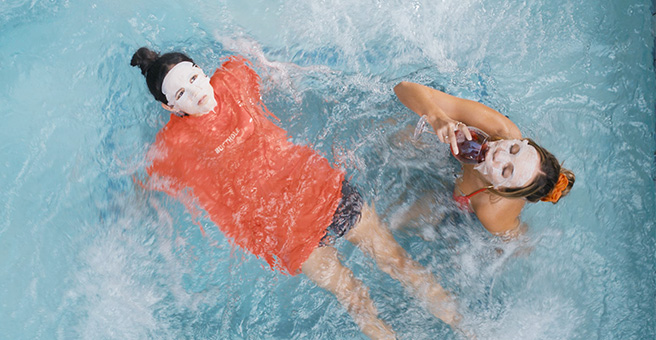
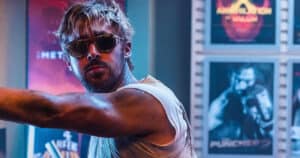
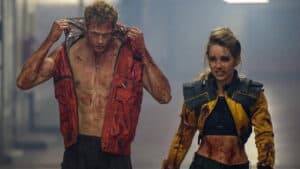
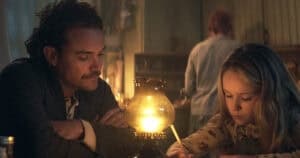
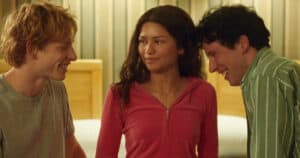
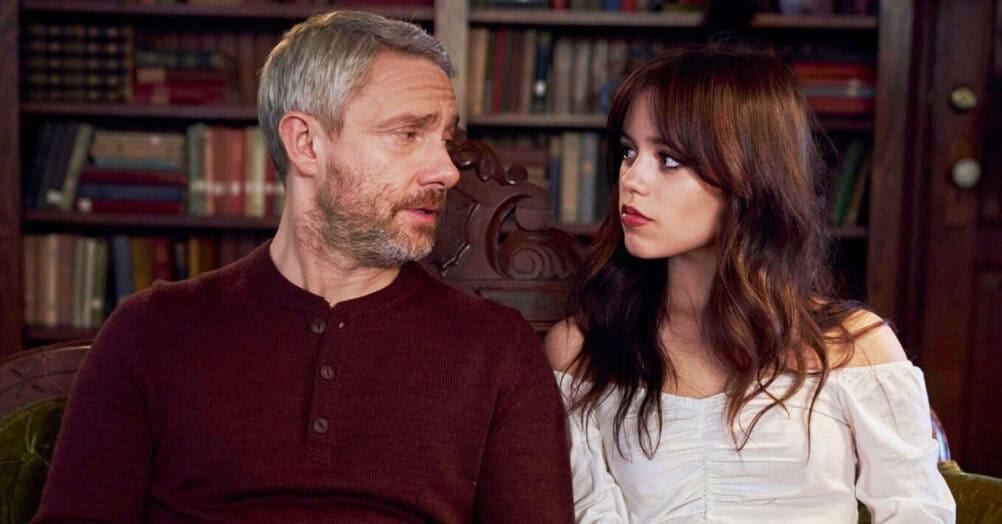
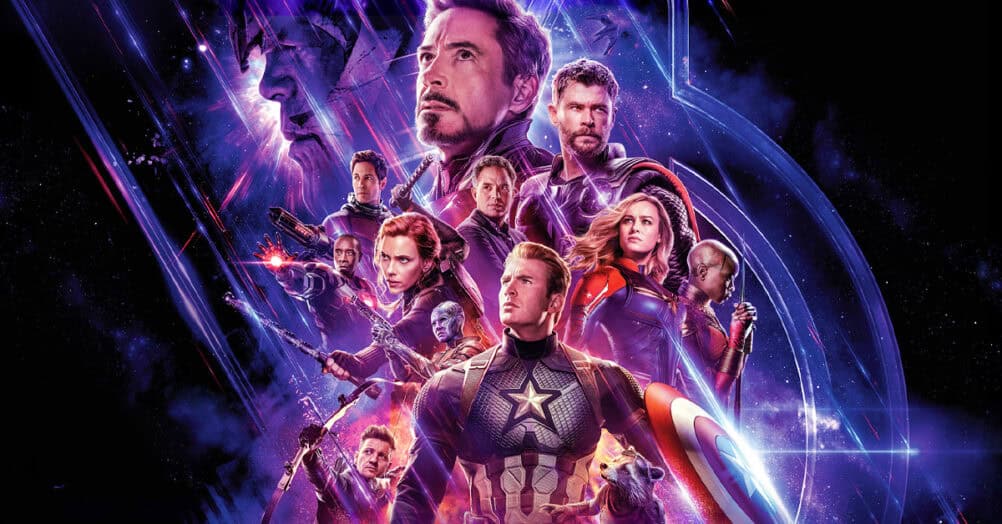
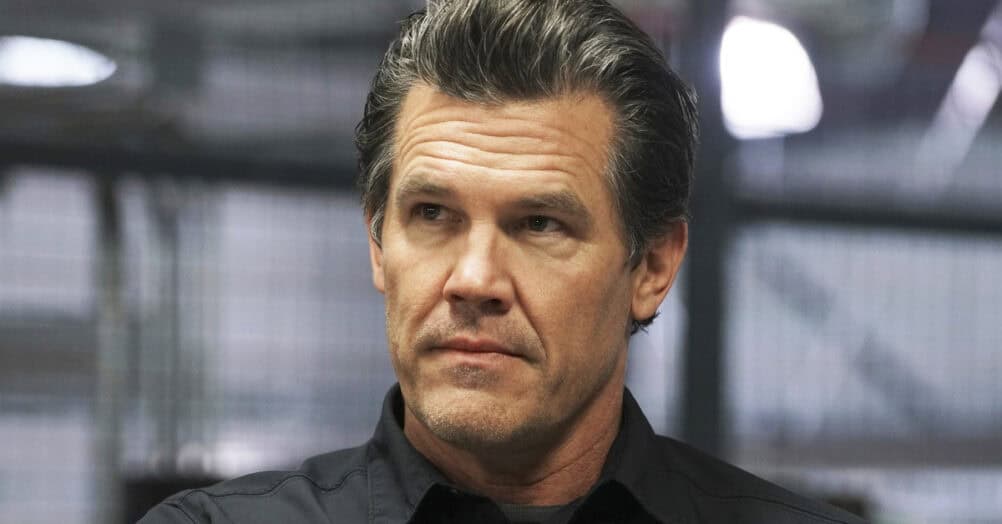
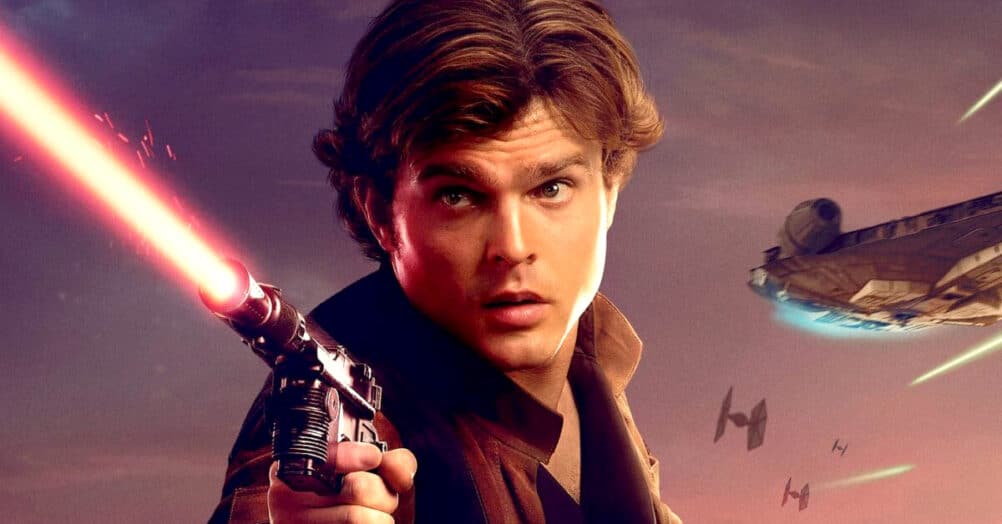
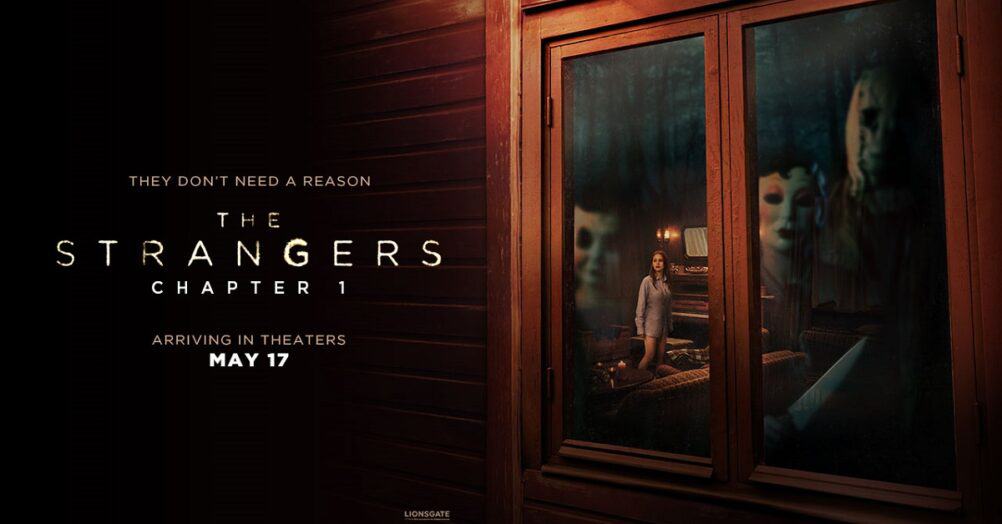
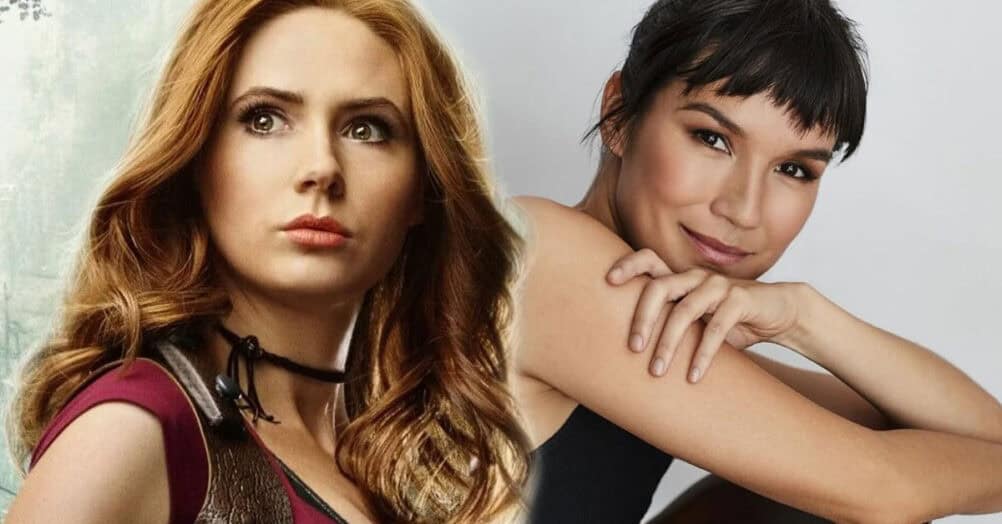
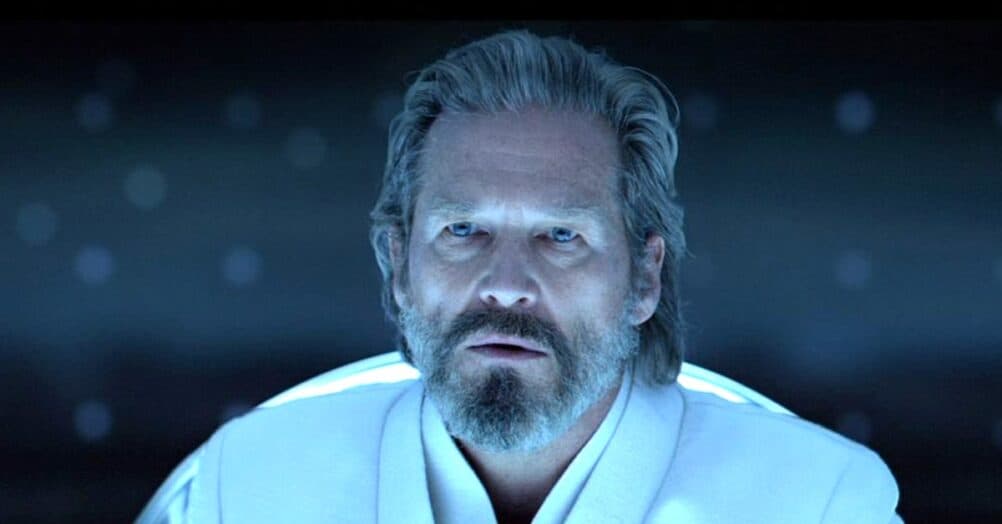
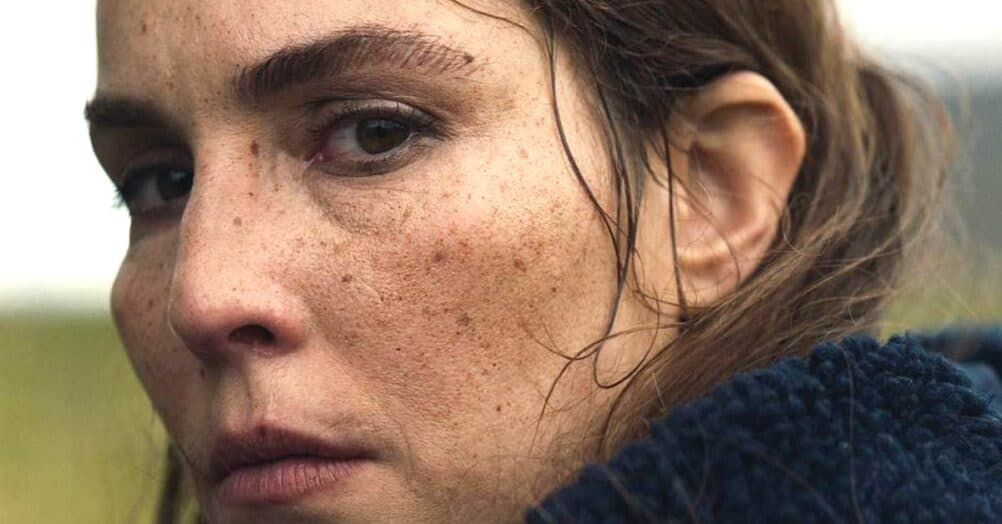
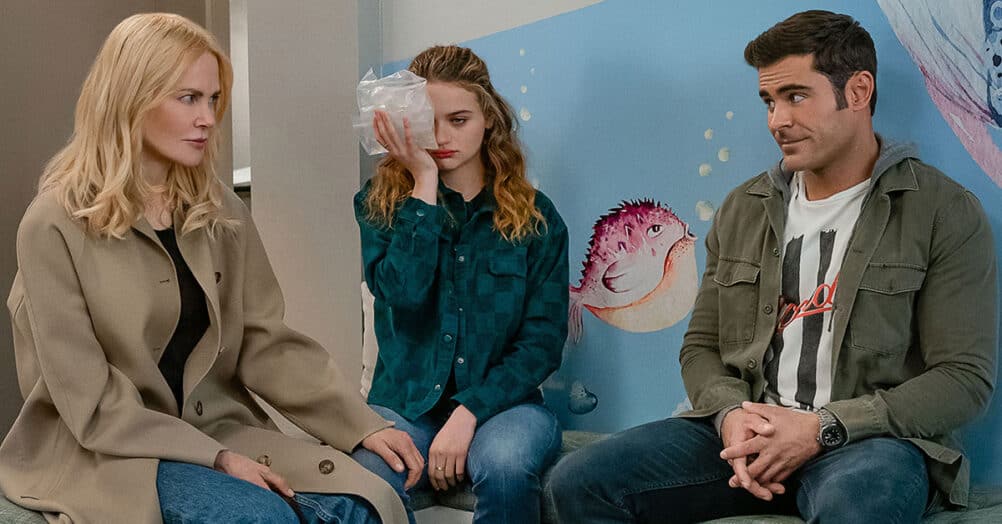

Follow the JOBLO MOVIE NETWORK
Follow us on YOUTUBE
Follow ARROW IN THE HEAD
Follow AITH on YOUTUBE